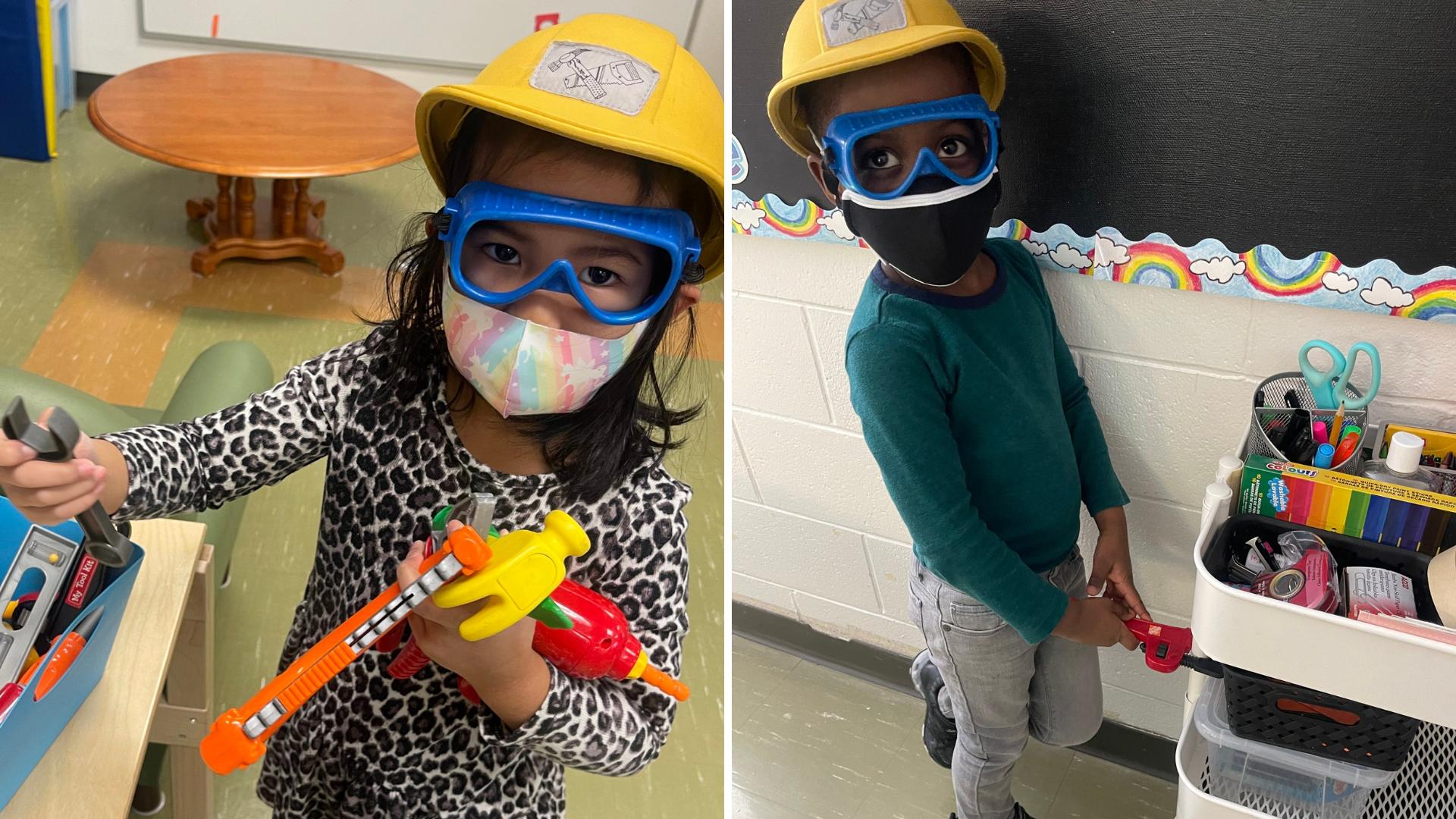We foster innovation to create Deep Learning so that all can realize their full potential.
Together we challenge ourselves to find innovative ways to meet our goals. Inventive programming and specialized educator roles helped nurture student engagement at all grade levels.
Students Leading the Charge
The OCSB Social Entrepreneurs Program (SEP) is an exciting business-oriented student-led initiative focused on Catholic social teachings. The goal is to gain entrepreneurial experience and develop innovative mindsets and future-ready skills to make a difference in the world. Paired with a community business partner, students and educators research social issues, choose a charity to support, and work on building a social enterprise. Students gain an understanding they are global citizens and changemakers who have an impact on the world around them.
This program is an example of Deep Learning in action. Allowing students to work with a business mentor in a student-led initiative provides an entrepreneurial experience. Students build critical thinking skills by questioning, researching, and digging deeper into social issues. They build character through decision-making experiences. They partner with mentors, experts, guest speakers, and charity partners. They often use the UN Sustainable goals as a learning and jumping-off point. Classes from 30 schools participated in SEP during the 2021-2022 school year.
Career Exploration For All Ages
Students who graduate grade 12 have many choices about what to do next. We try to give them many opportunities to explore their options before facing that decision. Last year we ran two successful initiatives that enabled all students in grades K-12 to do some form of career exploration: OCSB Career Week was held in November, and OCSB STEAM week took place in March. Both weeks featured a different theme each day and age-appropriate activities designed to open students’ minds to a world of possibilities. With many live-streamed events, including guest speakers and career panels, there was something for everyone.
Delivering Proficiency in e-Learning
The OCSB has offered its students e-Learning high school courses since 2013. Last year, when the Ministry of Education introduced the online learning graduation requirement (PPM 167), we were well-positioned to offer our students access to various courses.
We offer a broad spectrum of e-learning courses covering all high school subject areas and have over 100 educators with experience facilitating e-learning courses. There has been a steady increase in the number of enrollments each year. The OCSB has been a long-time partner with two e-learning consortia in the province. This relationship allows us to provide spaces in our e-learning courses to out-of-board students while allowing our students to register for courses facilitated through other school boards. Being part of the consortium means our students have access to over 1500 options, including unique courses our schools might not be able to offer regularly. Our educators have also participated on writing teams that have worked to revise and integrate Catholic content into e-learning courses now available to teachers.
Innovative Professional Development Opportunities
We strive to provide all our staff with professional development options that suit their needs. One particular opportunity that proved to be very successful is our Summer Institutes Professional Learning Series. These are sessions developed and presented by OCSB staff. Sessions ran over two weeks at the end of August, with over 850 staff participating during the series. A total of 67 sessions were offered over six days, varying in length and format to provide more access and flexibility.
Specialize Educator Supporting Students and Staff
A number of our educators have specialized roles in supporting student success.
Learning Partners
We employ learning partners in Literacy, Numeracy, and FSL to support educators in their respective subject areas across our entire system. Given the variety of new initiatives regularly introduced in education, these educator leaders bring job-embedded support and relief into any classroom they walk into throughout the school year. The role of the Learning Partner is to collaborate with schools, principals, and educators to support student success through effective instructional strategies that meet the needs of all learners. The focus is on building capacity and using a student-centred approach.
Graduation Coach for Black Students
We continue to promote equity, human rights, and inclusion for our Black student community. In the 2020-2021 school year, our board was selected by the Ministry of Education to pilot a student engagement program for Black students called the Graduation Coach Program for Black Students. The purpose of the program is to provide culturally responsive support to Black students to improve their well-being and academic achievement.
The Graduation Coach for Black Students is a mentor and advisor who advocates for students with school and school board staff. Last year, we hired two coaches to work at three high schools: Notre Dame, Lester B. Pearson, and St. Patrick’s. They worked with an OCSB team consisting of school administration, relevant school staff, and a central team supporting this initiative. Additionally, the core team engaged and collaborated with a Circle of Caring Adults, which consists of Black community members. Since piloting the program, we have witnessed significant improvements in the engagement and academic achievement levels of Black students.
Lead ECE
Our Kindergarten program thrives on the collaborative relationship between the teacher and the early childhood educator (ECE). Last year, we created a new position called Lead Early Childhood Educator to support the Kindergarten program from a Registered ECE perspective. The Lead ECE:
- Develops and facilitates professional learning opportunities and resources for kindergarten teams and administrators
- Partners with internal departments and external organizations
- Provides direct support for Kindergarten educator teams in the classroom
- Supports the development of authentic learning experiences in our kindergarten classrooms
This role helps early childhood educators feel visible and vital. Educators feel their voices are being heard and have an advocate at the table. Kindergarten is a unique program, and educators appreciate having support for the entirety of the program. Feedback from educator teams and administrators has been very positive.
